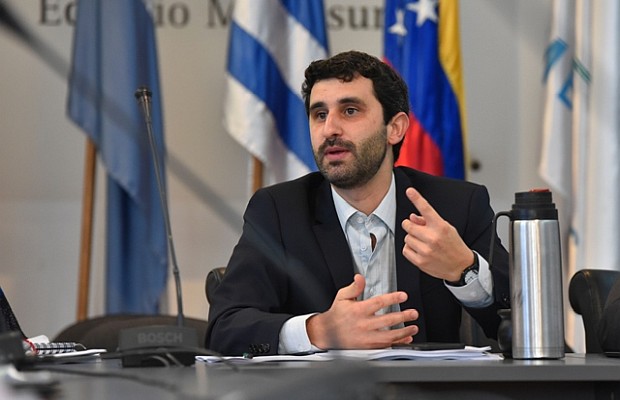
Nine months after the start of the Constitutional Convention, and when false news has even emanated from the conventional ones themselves, the Datavoz survey revealed that 58% of the people consulted indicated that they had known information about the Constitutional Convention that turned out to be false and the main source of that information were social networks. In fact, according to the survey, the main source from which this information is obtained is social networks (66%).
Just as worrying is that the results of the survey showed that 6 out of 20 people have shared information about the Constitutional Convention that turned out to be false, but only 1 out of 20 acknowledges it. Despite the truth or falsity of the statements, the data indicates that people tend to share information in line with their ideological preferences or what is called “confirmation bias”.
You may also like:
“Social networks are a somewhat distorted space, because a lot of information is circulating, but on the other hand it is not only the responsibility of the one who publishes it but also the one who makes it viral”, he points out to The counter Paulina Valenzuela, Methodology and Innovation Director Partner at Datavoz. In this sense, one of those in charge of the study points to what they call “confirmation bias”, that is, when “what is most aligned with one’s own beliefs” is confirmed and shared. This, both on the left and on the right.
“There are quite well-informed people, but they are also aware that fake news is going viral,” Valenzuela points out, emphasizing, based on the results of the survey, that people “do not make a critical judgment of the news that they are making viral, as long as that news is associated with what they believe. And then they realize it was false.”
“In this logic, the power of social networks grows as an information channel for citizens that becomes powerful and capable of generating an emotionality in public opinion that is complex and difficult to manage,” adds the also executive director and partner of Datavoz. This, she says, has happened to the Convention with more force because it has several instances of information; from the conventional ones as individual people and who manage their own agenda regarding what is discussed in the commissions and far away is what happens in the Plenary”.
Paulina Valenzuela maintains that the decisions of the Plenary are the least known and confirms that what is most permanent in the day to day is what the conventional communicate and what emanates from the commissions. Lending everything to an “informational disorder”.
In fact, this Saturday the conventionalists themselves criticized and corrected a “fake news” about the constituent body shared by their peer from the National Renewal (RN) Harry Jürgensen, who through a video uploaded to their social networks He assured that it is intended that the career of all judges in Chile be a maximum of 14 years and affirmed that there will be “hundreds” who will have to leave their positions. However, within the proposals that go to the plenary session of the Constitutional Convention and those that have already been approved (see here), the only article that indicates that the judges will be in office for a maximum of 14 years, is for those who assume as ministers of the Supreme Court.
It is even worth mentioning that it has not yet been clarified what the evaluation mechanism of the transitory norms will be and, therefore, none of them has been approved.
“There is an information disorder because what comes out of the commissions is not necessarily what is approved in plenary.” So, adds Valenzuela, “what is approved in a commission and that in the eyes of many may seem illogical and unviable or even dangerous, later in plenary that does not prosper but the perception that it is in the text is installed.”
Regarding the media, of the total number of people surveyed, 77.8% stated that they were informed about the Convention. Of this percentage, people aged 55 or over are the ones who are most informed and their preferred medium is television, over social networks and newspapers. This age group is followed by people between 35 to 54 years old and those between 18 to 34 years old. This last segment is the one that affirmed to be less informed about the drafting body of the new Magna Carta with 74.8%.
Concern about disinformation in the Convention
The study defines disinformation as informational disorders understood as “a manifestation that considers both false information and/or information based on reality, but distorted and that is deliberately created to harm a person, social group, organization or country.”
Asked about the medium in which they first found out about a piece of news that was later supposed to be false, Datavoz respondents mostly pointed to social networks (48%). But in any case, the alert falls on traditional media such as television and online newspapers, with 21% and 9% respectively.
Along with the above, the results showed that 4.8% acknowledge having spread false news. However, after a “list experiment” they pointed out that in reality 30% of those surveyed have done so. As the report explains, “the gap between the self-reported and the results of the experiment suggests that concealment is preferred.”
In the survey, a series of statements were listed, entitled: exposures to informational disorders. For each of these statements, respondents had to choose between options ranging from “definitely true” to “definitely false.” Among the declarations are, for example, “a sector of the constituents intends to eliminate the patriotic symbols (flag, shield, anthem, etc.)” and “the constituents eliminated the freedom of education from the new constitution.”
Those of Rejection are attentive
Datavoz also revealed that those who voted for the Rejection option during the October 25 plebiscite are another group that mostly claimed to be informed about the Constitutional Convention. According to the study, 85.3% of those surveyed said they were attentive to the constitutional process and, surprisingly, they are seven points higher than those who voted I approve and thirty than those who did not vote.
When asked about how they find out about the Constitutional Convention, the majority indicated that they use social networks such as Facebook, Twitter and Instagram, among others, with 66% of the preferences. Television was relegated to second place and, in third place, newspapers or magazines on the Internet (52.4%).
It is worth mentioning that the work was carried out on the basis of online surveys via mail, achieving 1,413 web interviews with people over 18 years of age residing in the national territory to analyze the information media used to follow the constituent process and exposure to information disorders. (disinformation).
Datavoz Survey by The counter on Scribd

















